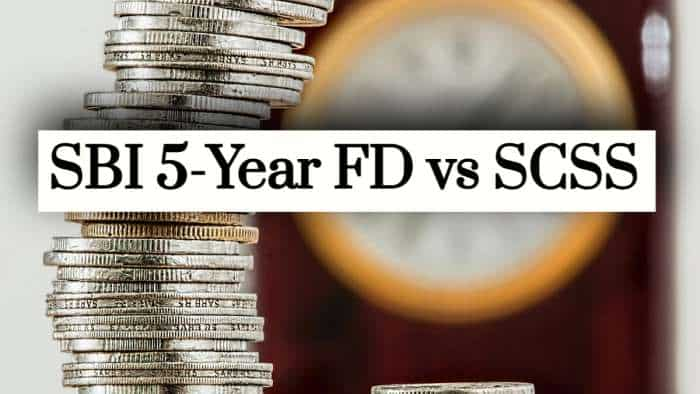Motilal Oswal: Markets’ reaction to IL&FS was an over-reaction
Motilal Oswal, chairman and managing director of Motilal Oswal Financial Services Ltd, talks about the current market scenario and what lies ahead for the stocks. In an interview with Soumonty Kanungo and Ahana Chatterjee, the co-founder said the markets’ reaction to the IL&FS was an “over-reaction”.

Motilal Oswal, chairman and managing director of Motilal Oswal Financial Services Ltd, talks about the current market scenario and what lies ahead for the stocks. In an interview with Soumonty Kanungo and Ahana Chatterjee, the co-founder said the markets’ reaction to the IL&FS was an “over-reaction”. He also expects the liquidity pressure to remain in the short-term.
What are your views on the current market conditions?
Right now, markets are very volatile. The whole story of IL&FS defaulting has created a ripple effect across the equity market. The myth was that debt and equity markets are very independent, they do not have too much of interdependence except for asset allocation. But this time, the reaction to DHFL paper created an impact on the entire NBFC (non-banking financial companies) sector, which is quite negative. The reactions also depends on the leverage position. As a group, we are also in the NBFC space but we do not leverage. Our NBFC caters to the broking customers. Wherever high leverage is there, it is impacting everyone. But the stock prices have become very attractive now. I think this is more temporary and too sharp a reaction. We all know IL&FS issue will be resolved, they are backed by assets and large institutions. So investors should not a panic that money is not going to be recovered. I am confident that this money will be recovered. There will be temporary liquidity problems but IL&FS has got strong promoters and strong asset quality. In short-term, it is impacting everyone.
Do you consider this as India’s Lehman moment?
No. Lehman was a very different kind of crisis. Here, temporary liquidity crunch is not going to impact the whole corporate sector in India. Lehman was a global crisis but here, it is mostly the NBFCs which are leveraged or over-leveraged. This is a temporary mismatch between assets and liabilities. IL&FS has got huge long-term assets, while they could not maintain short-term obligations. To tackle this situation, the promoters will definitely take time.
Even NBFCs that are not over-leveraged, including your company’s stock, have seen a correction.
It is an inter-linked market. Maybe we haven’t suffered as high as other NBFCs, but it impacted all NBFCs.
Do you feel this shows lack of confidence in the NBFC space?
This is an over-reaction to an event. Markets always over-react to certain developments. But this time, there are trade wars, currency weakening and then IL&FS ' all of these bundled together. Multiple forces are happening at a time.
Do you expect the liquidity pressure to remain?
In short-term, it may. When there are too many rumours floating around, people become conservative and too cautious. When sentiments are unfavourable, rumours impact investors and their confidence. The same thing happened during demonetisation.
How much more correction are you anticipating?
If you look at long-term, the stock price reflects the fundamentals of the company. When we know earnings are going to be absolutely robust, we don’t have to worry about prices. The earnings estimates are quite positive. We have seen earnings of March 2018 and we think earnings of March 2019 are going to better, and March 2020 will be even better. The economy is really going up. We have 7.5% of GDP growth, with 5% inflation, means the economy is actually growing at 12.5%. This means “good” companies will grow at 15-20%. We don’t need to be too worried about too many corrections in the market as fundamentals of the economy and the corporate profit growth are going to be much better than what they used to be.
What are your views on the second quarter of this fiscal?
We have seen some positive trend building in Q1 (FY2019) and we believe Indian corporates will build upon this positive trend in this quarter as well. While we will have some serious headwinds from oil marketing companies’ (OMC) profitability, we think the public sector banks will now stage a comeback, having written off a large part of their non-performing assets (NPAs) and with the proceedings of the National Company Law Tribunal (NCLT). Manufacturing sector led by autos, white goods, will have a higher teen growth while fast moving consumer goods (FMCG) will have higher single-digit growth. Overall, on a consolidated basis, we will have a positive momentum build-up in the corporate earnings. That will mimic the macro build-up in the economy. Small surprise from export-oriented sectors like technology and pharma on the back of sharp rupee depreciation will be a highlight.
Which sectors will you be betting on?
Information technology, FMCG, private sector banks, housing finance companies (HFCs). HFCs are great businesses. Right now, big businesses are going through a large correction.
What are your views on mid-cap stocks?
Mid-caps will have high volatility compared to large-caps. Return will be high, and so is the risk. It all depends on how the sector and the companies are valued. My worry is when companies’ growth is not there but the markets are valuing them very high. So the corrections happened wherever valuations were stretched but growth was not coming. I don’t care about small, mid or large-caps so long as valuation parameters and company’s growth numbers are intact. Fundamentally, small mid-caps are more volatile than large caps and investor will look at the business, its valuations and growth.
This is for the first time before an election year that the stocks have seen such a rally, and then the sell-off started. Do you consider this normal before an election year?
You should not look at points. See 4,000 points means 10%. When the index was at the 20,000-mark, then 10% was 2,000. The number looks very big but actually, it is 10%. I think it happens. If you look at 2008, (the year before the election), the market had fallen 50%. But it recovered the very next year in a big way. I have seen that the speed of fall is much higher than the speed of rising. If you look at the long-term, ups are permanent but downs are temporary.
What are your views on the market for initial public offerings (IPO)?
The IPO markets are unpredictable and very volatile. It takes time for the IPOs to revise prices. Many good company IPOs are below their issue prices. IPO means people want good returns, but it is not happening. It will take time. This is not a good time for the IPO markets. When the markets are stable, the IPO market, too, will see momentum.
You have constantly diversified your firm and opened new business verticals in a gap of a few years. Will this continue?
From day one of our journey, we have been diversifying. But right now, we are not. We are concentrating on consolidation. We will grow from wherever we are. My broking market is still 4-4.5%, housing finance business is 0.5%. My focus is now to grow each business faster in terms of market share.
How long it may take to address the problems of Aspire Home Finance, your HFC?
Watch This Zee Business Video Here:
All the corrective actions have been taken already. We have a new managing director and we will go back to the growth path. We are already seeing growth in sales, correction efficiency is very high. We hope to complete the clean-up exercise before this fiscal-end.
Source: DNA Money
Get Latest Business News, Stock Market Updates and Videos; Check your tax outgo through Income Tax Calculator and save money through our Personal Finance coverage. Check Business Breaking News Live on Zee Business Twitter and Facebook. Subscribe on YouTube.
11:41 AM IST













 Raymond Lifestyle up 3% as Motilal Oswal reiterates 'Buy'; targets 49% upside
Raymond Lifestyle up 3% as Motilal Oswal reiterates 'Buy'; targets 49% upside 2024 emerges as a blockbuster year for IPOs with record raising of Rs 1.8 trillion: Motilal Oswal
2024 emerges as a blockbuster year for IPOs with record raising of Rs 1.8 trillion: Motilal Oswal CEAT shares rise 5% as brokerages back Camso deal; stock up 36% YTD
CEAT shares rise 5% as brokerages back Camso deal; stock up 36% YTD Scooter sales outpace motorcycle segment so far by 18.4% YoY growth in FY25: Motilal Oswal
Scooter sales outpace motorcycle segment so far by 18.4% YoY growth in FY25: Motilal Oswal Rupee resilient despite FII outflows, India's contribution to world market cap grows
Rupee resilient despite FII outflows, India's contribution to world market cap grows